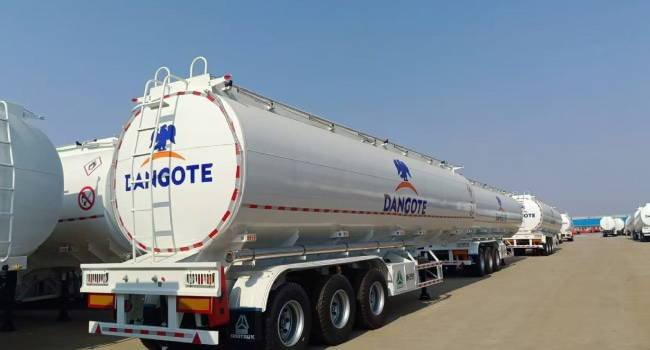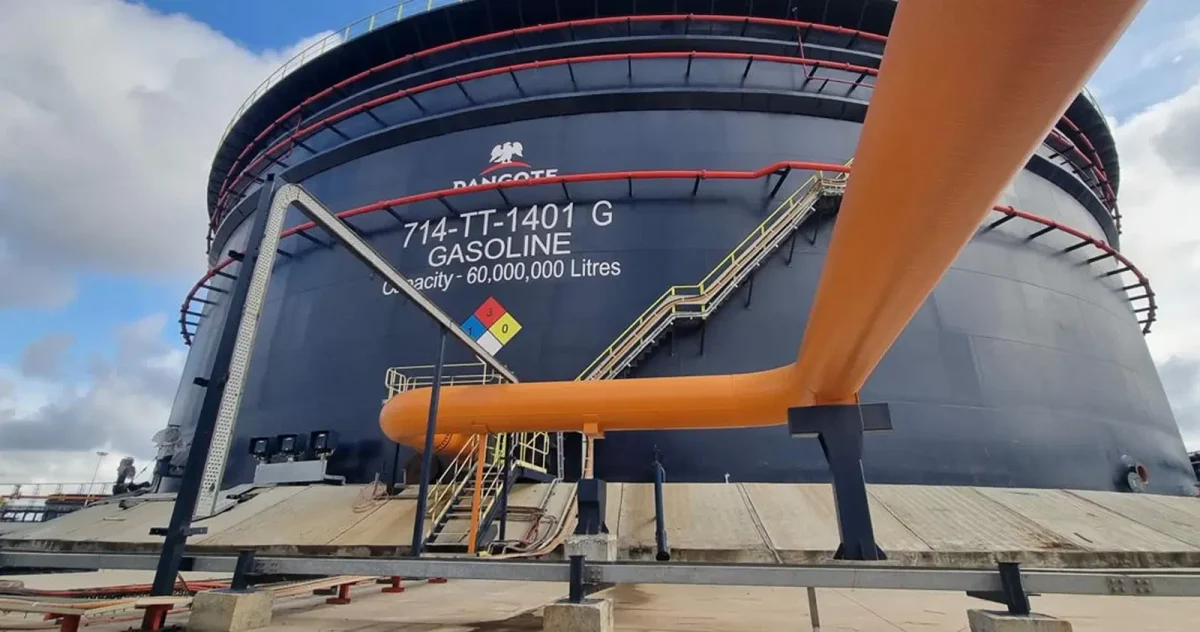The Dangote Petroleum Refinery has firmly denied reports suggesting it imported high-sulphur petrol into Nigeria, describing such claims as “false, misleading, and malicious.”
In a statement issued in Lagos on Friday, October 10, the refinery stressed that it has never imported petrol into the country, nor does it produce or plan to distribute fuel that fails to meet national and international quality standards.
“Our refinery produces Euro V-standard petrol, which complies with both Nigerian Midstream and Downstream Petroleum Regulatory Authority (NMDPRA) specifications and international environmental requirements,” the company stated.
The clarification follows media reports alleging that Dangote Refinery had brought in high-sulphur petrol, sparking public concern over fuel quality and environmental safety.
The company dismissed the reports as “an orchestrated attempt to tarnish its reputation and discredit Nigeria’s push for energy self-sufficiency.”
Dangote emphasised that all its refined products undergo rigorous quality control procedures, and that no fuel leaves its facilities without NMDPRA certification. The refinery’s management reaffirmed its commitment to supporting the Federal Government’s efforts to ensure clean, sustainable energy for Nigerians.

“We are proud to be at the forefront of transforming Nigeria into a net exporter of refined petroleum products. Any narrative suggesting that we import substandard fuel is not only baseless but also undermines national industrial progress,” the statement added.
Analysts note that the refinery, which has the capacity to process 650,000 barrels of crude oil per day, is central to Nigeria’s energy strategy and could end decades of dependence on imported petroleum products.
Environmental experts have also pointed out that the refinery’s Euro V standard output represents a significant improvement in fuel quality, reducing sulphur emissions and aligning with global climate goals.
The controversy over “high-sulphur petrol” comes at a sensitive time for the Nigerian downstream sector, where discussions about product pricing, subsidy mechanisms, and distribution logistics continue to dominate public discourse.
Dangote Refinery’s management urged media outlets to verify information before publication and reaffirmed its readiness to work with regulatory agencies, civil society, and the press to ensure transparency.
“We will continue to operate with integrity, accountability, and a strong sense of national responsibility,” the company concluded.


 Trending
Trending 








